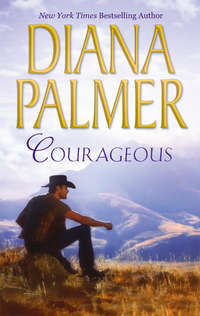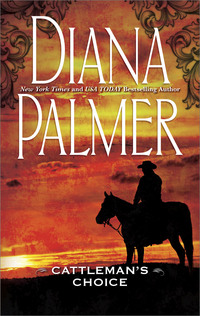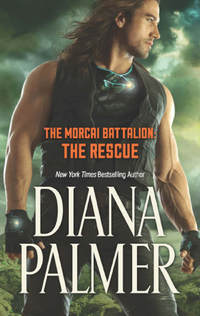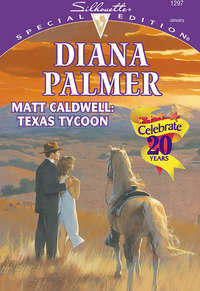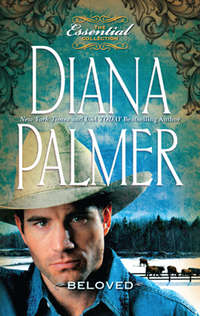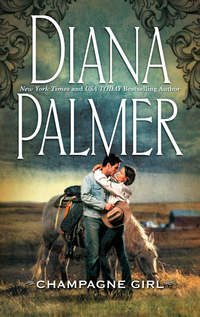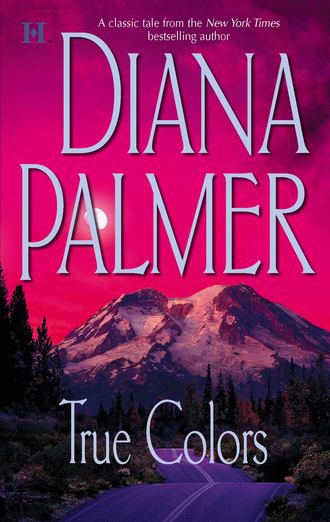
Полная версия
True Colors
“I’ll bet they never bought you kidskin moccasins and your very own Jacuzzi,” she said haughtily.
“Well, no.”
“And they don’t give you three weeks’ paid vacation and offer you free hotel rooms and carte blanche at restaurants,” she continued.
“Well…”
“And they don’t hug you like I do,” Blake exclaimed, throwing his arms around Mr. Smith’s thick neck as hard as he could.
Mr. Smith chuckled, returning the hug. “Got me there,” he admitted. “Nobody in the CIA ever hugged me.”
“See?” Meredith asked smugly. “You’re well off and don’t know it.”
“Oh, I know it,” he said. “I just like to watch you squirm.”
“One of these days,” she began, pointing a finger at him.
“That’s our cue to leave, Blake,” Mr. Smith said, turning with the boy in his arms to head for the door. “She’s good for an hour on that subject.”
Meredith hid a smile and went back to her packing.
TWO DAYS LATER she arrived in Billings on the bus. She could have flown, but that was an admission that she had money. A bus ticket was considerably cheaper, and besides, the bus station was located next door to the office of Harden Properties, Inc.
She waited for her suitcase, her hair loose around her shoulders, wearing a pair of jeans and a faded denim jacket over a sweatshirt. She wore a pair of scuffed boots she’d used for riding back home, and she’d left off her makeup. By and large, she looked very much as she had the day she’d taken the bus out of Billings six years before. Except that she had a different secret now, one she was going to enjoy keeping until the proper time.
In an office building just catercorner to the bus station, a man sitting at a desk happened to notice the movement of passengers disembarking. He got out of his swivel chair and moved to the one-way window, staring down with dark eyes that seemed to burst with mingled emotions.
“Mr. Harden?”
“What is it, Millie?” he asked without turning.
“Your letter….”
He had to force himself to turn away from the window. Surely not, he thought. That couldn’t be her, not after all these years. He’d seen her in crowds before, only to get closer and find another face, the wrong face. But he felt as if it were Meredith. His heart began to beat with the fierce rhythm she’d taught it. He felt alive for the first time in six years.
He sat down, his tall, fit body in a dark blue suit so striking that even his secretary of many years stared at him. He was thirty-four now, but sometimes his lean, deeply tanned face seemed older than its years. There were lines around his eyes, too, and threads of gray in his thick, black hair. He had an elegant look for a man whose primary interest was agricultural properties and acquisitions and who had a ranch and spent time with cattle and horses.
“Forget the letter,” he said abruptly. “Find the address of Mary Raven. Her husband was Crow—John Raven-Walking, but they’re listed in the phone directory as Raven. They moved into town two or three years ago.”
“Yes, sir.” Millie left to find the address for him.
Cy continued to sit, turning to read some new contracts and an inquiry from one of his directors about a few mining leases he’d refused to cede to Tennison International. He looked at the papers without seeing them as memories flooded back, memories six years old of a woman who’d betrayed him and left town under a cloud of suspicion.
“Sir, there’s an obituary here,” Millie said as she returned thumbing through the local paper. “I saw it last week and meant to mention it. Well, I remembered, you know, about that Ashe girl who was involved in the theft six years ago.”
Cy bristled. “Her part in it was never proved,” he corrected.
Her eyebrows arched, but she was concentrating on the column and hardly heard him. “Yes, here it is. Mrs. Mary Raven, and here’s the address—they print it, you know. She was buried two days ago. No family is listed at all. I suppose they didn’t know about Miss Ashe at the newspaper….”
“Give me that.” He took the paper and pored over it. Mary was dead. He remembered her from the Crow reservation, where she and Raven-Walking had lived until the old gentleman’s death two years ago. Mary had moved into town. God only knew how she’d managed to afford a house on her Social Security. Cy hadn’t seen the house but knew about it because he’d seen her one day in Billings. He’d questioned her harshly about Meredith, but she wouldn’t tell him anything. She was frankly evasive and even a little frightened. He grimaced, remembering his desperation to find Meredith. The old lady had practically run to get away from him. He hadn’t followed her, but he’d been tempted to go and see her. Then he’d realized that it would accomplish nothing. He’d only upset her more. Besides, the past was dead. Meredith was probably married by now, with a house full of kids.
The thought hurt him. He sighed angrily. Well, she’d be coming back, surely. In fact, that could have been Meredith he’d just seen. Someone would have to tie up all the loose ends that Mary’s death created. He knew that Meredith was Mary’s closest living relative.
He sat back in his chair, scowling. Meredith was here. He knew she was. He didn’t know whether he was sorry or glad about it. He only knew that his life was about to be disrupted all over again.
CHAPTER TWO
IT WAS TOO MUCH to hope for that Cy would walk out of his office building and run headlong into her, Meredith decided as she watched the city bus head toward the Billings station. He might not even be in town. Like Henry, and now herself, business demanded frequent trips to business meetings and conferences. And for her to run into the object of her youthful desire today would require a ferocious kind of coincidence or a helping hand from fate.
She boarded the bus and got off several minutes later near the Rimrocks. Her aunt’s little house sat on a dead-end street sheltered by towering cottonwood trees. This house, thank God, held no memories for her. When Meredith lived here, Great-Aunt Mary’s home was a small matchbox on the reservation. When she dated Cy, they always wound up in the penthouse he kept at the Sheraton, the tallest building in the city. She ground her teeth, remembering. Perhaps it had been a mistake to come back here after all. With the city of her youth around her, memories hurt more.
She unlocked the door with the key Mr. Hammer, the Realtor, had sent her. September was chilly here in southeastern Montana, and the snows weren’t far away. She hoped to be long gone before they trapped her.
The house was cold, but fortunately Hammer had remembered to have the utilities put on for her. There was a gas stove with the pilot light already burning, and the electricity worked. He’d even been kind enough to leave her a few groceries. Typical Montana hospitality, she thought, smiling. People here looked out for each other. Everybody was friendly and kind, even to tourists.
Her eyes lingered on the old but functional furniture. Everything was done in Early American, because that was what Great-Aunt Mary liked. But she had kept many of her late husband’s treasures. The medicine shield and bag that he always displayed so proudly were on the one wall. His pipe, with its exquisite decoration, rested on another peg, as did the bow and arrows his own grandfather had made for him in his youth. There were several parfleche bags filled with secret things in a coffee table drawer. There was a huge mandala on another wall, and assorted dried skins and woven hangings on the others. Dead potted plants covered almost every available surface. Great-Aunt Mary’s plants had been her greatest treasures, but they’d gone without water since her death and now were beyond saving…except for one philodendron, which Meredith took to the kitchen and watered, then placed gently on the Formica counter.
When she noticed the telephone on the wall, Meredith felt a stab of relief. She was going to need it. She was also going to need her fax machine and her computer with its internal modem. Smith could bring all that equipment out, and she could make use of Aunt Mary’s library as an office. It had a door that locked, to protect her secret from prying eyes in case any of the Hardens ever made it this far.
Meredith was a little concerned over the amount of time this project was going to take, but the mineral leases were her top priority right now. The domestic operation simply couldn’t move ahead with its expansion program without them. She was committed, however long it took. She’d have to keep up with business through Don and the telephone and hope for the best.
Worst of all was the time away from Blake. He was becoming hyperactive in school. Her lifestyle was apparently affecting him more than she’d realized. And business had edged its way between them until she couldn’t even sit down to a meal with her son without being interrupted by the telephone. He was on edge, and so was she. Maybe she could use this time to her advantage, to catch up on work so that she could have more time with him when she got home again.
She made herself a pot of coffee, smiling at the neatness of the little kitchen with its yellow walls and white curtains and oak furniture. Aunt Mary hadn’t wanted to let Meredith and Henry buy her this house and furnish it, but they’d convinced her finally that it was something they wanted to do. Despite the fact that she had friends and cousins on the reservation, they wanted her close to her best friend, Miss Mable, who’d offered to look after her. Miss Mable had died only a few weeks before Mary. Perhaps they were together now, exchanging crochet patterns and gossiping on some ghostly front porch. Meredith liked to think of them that way.
Her fingers were cold, and she almost spilled the coffee as she poured it. Aunt Mary’s doilies were everywhere in the living room, intricate patterns of colored thread that she’d crocheted so beautifully. It was a shame to use them, and Meredith knew that she wasn’t going to let them be sold with the house when the time came. She’d have to choose some personal items to keep, especially the doilies and quilts, and of course Uncle Raven-Walking’s legacy for little Blake.
As Meredith’s gaze lingered on the beautifully decorated parfleche bags she had removed from the drawer, she remembered sitting on Uncle Raven-Walking’s knee while he told her stories about the long-ago times of the People and how they’d enjoyed their horse-taking forays into Cheyenne and Sioux camps, and vice versa. So much she’d read and seen about the Plains Indians was inaccurate. The thing she remembered most from her uncle was his teachings about giving and sharing, traits that were inherent in Crow society. The giving of gifts and the sharing of acquired wealth were commonplace among these Indians. Selfishness was virtually unknown. Even the religion of the Crow focused on brotherly love and giving to the less fortunate. Nobody went hungry or cold in the camps of long ago. Even enemies were fed and gifted and allowed to go their own way, if they promised never again to make war on the Crow. No enemy was attacked if he walked into camp unarmed and with peaceful intent, because courage was admired.
Courage…Meredith sipped her coffee. She was going to need plenty of that. Myrna Harden’s face flashed before her eyes, and she shivered. She had to remember that she was no longer eighteen and poor. She was twenty-four, almost twenty-five, and rich. Much richer than the Hardens. It was important to keep in mind that she was equal to them socially and financially.
Her eyes settled on Uncle Raven-Walking’s medicine pouch. It contained, among other things, kinnikinnick—willow shavings used as tobacco—and sage, some gray dust from the Custer battlefield, a tiny red rock, a red-tailed hawk feather and an elk tooth. She’d opened it once secretively and looked in. Later she’d asked her uncle about the contents, but all he was willing to say was that it was his own personal “medicine,” to keep away evil and protect him from enemies and ill health. How ironic, she mused. Her people seemed to think money and power were the answers to the riddle of what made life bearable. But Uncle Raven-Walking had never cared about having things or making money. And, content to work as a security guard for Harden Properties, he was one of the happiest people Meredith had ever known.
“Wasicun,” she murmured, using a Plains Sioux word for whites. It meant, literally, “You can’t get rid of them.” She laughed, because it seemed to be true. The Crow word for whites was mahistasheeda—literally, “yellow-eyes.” Nobody knew why. Maybe the first white man they saw was jaundiced, but that was the expression. Crow called themselves Absaroka—“People of the fork-tailed bird.” Meredith had loved the huge Montana ravens as a girl. Perhaps the forerunners of the Crow had loved them, too.
She finished her coffee and carried her suitcase into the neatly furnished second bedroom, the one Aunt Mary had used as a guest room. Meredith had never used it—she’d been too afraid of seeing the Hardens to ever come back to Billings.
Her few things put away, Meredith took the bus to a small convenience store several blocks away and bought a sack of groceries. It had been years since she’d done anything so menial. She had maids and a housekeeper at her Lincoln Park house, and they took care of such things. She knew how to cook, but it wasn’t a skill she practiced often. She smiled at her own shortcomings. Aunt Mary liked to chide her for her lack of homemaking abilities.
She decided to walk back. Passing the enormous Billings city park she sighed at its beauty. The towering cottonwoods formed a green canopy over the lawn. Here, in summer, there were symphony orchestra concerts and ice-cream suppers. There was always something going on. Billings was a huge city with well-designed wide streets and plenty of elbow room, spreading between the Rimrocks and the Yellowstone River, with railroad tracks through the city and all around, because plenty of trains came through here. Agriculture and mining kept things going. Refineries were everywhere. So were vast ranches and fields of wheat and sugar beets. To the west stood the towering Rocky Mountains, to the southeast the Big Horn and Pryor mountains. Buttes surrounded Billings, leveling off to flat plains and rolling hills farther east. Meredith loved the country out of town, loved the vastness of it, loved the absence of concrete and steel. Distances were terrifying to easterners, but a hundred miles was nothing to a Montanan.
Her arms tightened around the grocery sack as she reached the street on which Great-Aunt Mary’s house stood. Odd, she thought, that sleek gray Jaguar hadn’t been sitting on the curb when she left. Perhaps the Realtor had come looking for her.
Digging in her jeans for her house key, she didn’t see the shadowy figure on the front porch until she reached the steps. Then she stopped dead. She felt her heart skip.
Cyrus Granger Harden was every bit as tall as Mr. Smith, but the comparison ended there. Cy was dark and dangerous-looking even in an expensive blue vested suit like the one he was wearing now. He stepped into the sunlight. Despite the anguish of the past six years, Meredith felt a surge of warmth shoot through her body as she looked at him.
He was older. There were new lines in that long, lean face with its high cheekbones, thick black eyebrows and deepset dark brown eyes. His nose was straight, his mouth a sensual delight, its firmly etched contours so familiar that Meredith had to drag her eyes back up. There was a Stetson tilted arrogantly over his broad forehead, covering hair that had the sheen of a raven’s back. His lean, dark fingers held a smoking cigarette; so he hadn’t quite given up that habit, she thought with faint humor.
“I thought it was you,” he said without preamble, his deep, cutting voice as harsh as the unrelenting sunlight on her bare head. “I can see the bus stop out my window.”
As she’d hoped. So he had seen her after all. She gave herself a quick, mental pep talk. I’m older, I’m richer, I have secrets, and he has no power over me. She repeated it.
Her full lips tugged into a careless smile. “Hello, Cy,” she said. “Fancy seeing you over here in the slums.”
His jaw tautened. “Billings doesn’t have slums. Why are you here?”
“I came back for your family silver,” she returned with a pointed stare. “I must have missed it on my last trip through.”
He shifted uncomfortably, ramming one hand into his pocket. It drew the thin fabric of his slacks against the powerful muscles of his long legs, and Meredith had to fight not to look. Unclothed, that body was a miracle of perfection, all dark skin and dark curling hair that wedged sexily down his chest and his flat stomach and feathered his legs….
“After you left,” he said hesitantly, “Tanksley admitted to my mother that you had nothing to do with the theft.”
Tony Tanksley, she recalled, was the “accomplice” she’d allegedly been in love and sleeping with. Only a jealous fool could have imagined Meredith going from Cy to Tony, but since Myrna had paid Tony to invent the story, the details she’d given him had been perfect. A classic frame. But regardless of that, Cy had believed her capable of infidelity and criminal acts. Love without trust wasn’t love. He’d even admitted that his only interest in her had been sexual. What a pity that her mother hadn’t lived, couldn’t have warned her about giving a man everything without counting the cost. The lesson she’d learned the hard way had been expensive.
“I wondered why the police hadn’t come after me,” she said easily.
His powerful shoulders moved under the fabric. “You couldn’t be found,” he said tersely.
Not surprising, considering the fact that Henry had stashed her on a Caribbean island during her pregnancy, with Mr. Smith to protect her. Nobody, but nobody, had been told her real name. She was known as Kip Tennison after their marriage, period. Now she was grateful for that safeguard. She’d been afraid that the Hardens might try to track her, if for no other reason than to embarrass her.
“How nice to finally know that,” she said with faint sarcasm, watching his eyes glitter as she shifted the bag of groceries. “A jail sentence wouldn’t have appealed to me.”
His face became more severe, his dark eyes narrowed under those thick brows as he studied her face. “You’re thinner than I remember,” he said. “Older.”
“Twenty-five next birthday,” she said breezily, but her smile didn’t reach her eyes. “You’re thirty-four now, aren’t you?”
He nodded. He moved his gaze down her body and back up. He felt as if he were dying inside all over again. Six long years. He remembered tears on that young face, and the sound of her voice hating him. He remembered, too, long, exquisite lovings in his bed with her arms clinging, her soft body like quicksilver under the heated thrust of his, her voice breaking as she moaned her pleasure into his damp throat….
“How long are you going to be here?” he asked tightly.
“Long enough to dispose of the house,” she replied.
He lifted the cigarette to his mouth. “You won’t keep it?” he asked, hating himself for being vulnerable enough to ask the question.
She shook her head. “No. I don’t think I’ll stay. Billings has too many enemies in it to suit me.”
“I’m not your enemy,” he replied.
She lifted her chin and stared at him with pure bravado. “Aren’t you, Cy? That isn’t how I remember it.”
He turned away, his eyes glancing down the wide street. “You were eighteen. Too young. Years too young. I never asked, but I’d bet I had your chastity.”
Meredith flushed. Cy watched the stain in her cheeks with faint amusement, the first he’d felt since he’d seen her get off the bus.
“So I did,” he murmured, tingling all over at having his suspicions confirmed.
“You were the first,” she said coldly. She smiled. “But not the last. Or did you think you were going to be an impossible act to follow?”
His pride bristled, but he didn’t react. He finished the cigarette and flipped it off the porch. “Where have you been for the past six years?”
“Around,” she said simply. “Look, this bag is getting heavy. Do you have anything to say, or is this just a friendly visit to see how fast you can shoot me out of town?”
“I came to ask if you needed a job,” he said stiffly. “I know your aunt left nothing except bills. I own a restaurant here. There’s an opening for a waitress.”
This was really too much, Meredith thought. Cy offering her a job waitressing, when she could easily afford to buy the place. Guilty conscience? she wondered. Or renewed interest? Either way, it wouldn’t hurt to accept it. She had a feeling she’d see a good bit of the Hardens that way, and it fitted in nicely with her plans.
“Okay,” she said. “Do I need to apply?”
“No. Just report for work at six sharp tomorrow morning,” he said. “I seem to remember that you had a job in a café when we first met.”
“Yes.” Her eyes met his, and for an instant they both shared the memory of that first meeting. She’d spilled coffee on him, and when she’d gone to mop up his jacket, electricity had danced between them. The attraction was instant and mutual…and devastating.
“So long ago,” he said absently, his eyes dark with bitterness. “My God, why did you run? I came to my senses two days later, and I couldn’t find you, damn you!”
Came to his senses? She didn’t dare dwell on that. She glared at him. “Damn you, too, for listening to your mother instead of me. I hope the two of you have been very happy together.”
His eyebrows arched. “What did my mother have to do with you and Tanksley?”
He didn’t know! She could hardly believe it, but that blank stare of his was genuine. He didn’t know what his mother had done!
“How did you get him to confess?” she asked.
“I didn’t. He told Mother that you were innocent. She told me.”
Her heart trembled in her chest. “Did she tell you anything else?” she asked with affected carelessness.
He scowled. “No. What else was there to tell?”
That I was pregnant with your child, she thought darkly, that I was eighteen and had nowhere to go. I couldn’t risk staying with Great-Aunt Mary with a theft charge hanging over my head.
She lowered her eyes so that he wouldn’t see the fury in them. Those first few weeks had been the purest hell of her life, despite the fact that they’d strengthened and matured her to a frightening degree. She’d had to take complete charge of her own life and fate, and from that time she’d never been afraid again.
“Was there anything else?” he persisted.
She lifted her face. “No. Nothing else.”
But there was. He sensed it. Her eyes held a peculiar gleam, almost of hatred. He’d accused her unjustly and hurt her with his rejection, but her anger went deeper than that.
“The restaurant is the Bar H Steak House,” he said. “It’s off North Twenty-seventh past the Sheraton.”
Meredith felt her body go hot at the mention of the hotel, and she averted her eyes quickly. “I’ll find it. Thanks for the recommendation.”
“Does that mean you might stay for a few weeks, at least?” he asked, frowning.
Her eyes fenced with his. “Why? I do hope you don’t entertain any thoughts of taking over where we left off. Because frankly, Cy, I’m not in the habit of trying to superglue broken relationships back together.”
He went very still. “Is there someone?”
“In my life, you mean?” she asked. “Yes.”
His face showed nothing, but a shadow seemed to pass over his eyes. “I might have known.”
She didn’t reply. She simply stared at him. She saw him glance at her left hand, and she thanked God that she’d remembered to take off her wedding band. But the engagement ring Henry had given her—a diamond-cut emerald with small diamonds—was still there. She remembered how Henry had laughed at her choice, because the ring was so inexpensive. He’d wanted to give her a three-carat diamond, and she’d insisted on this ring. How long ago it seemed.
“You’re engaged?” he asked heavily.


